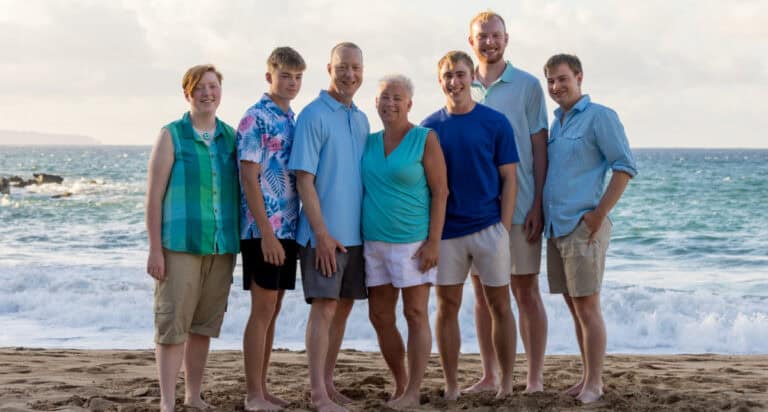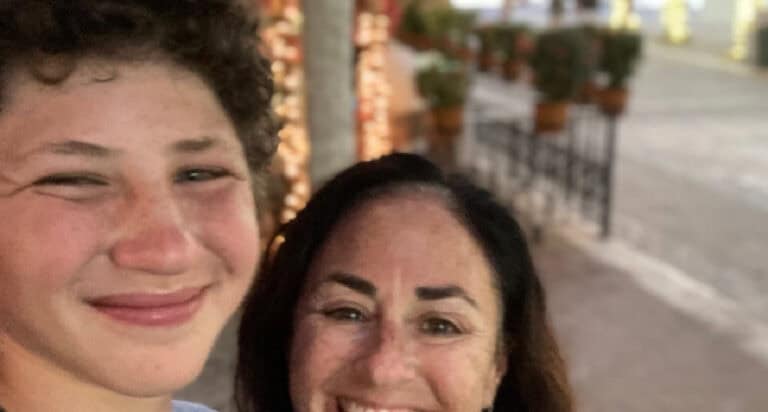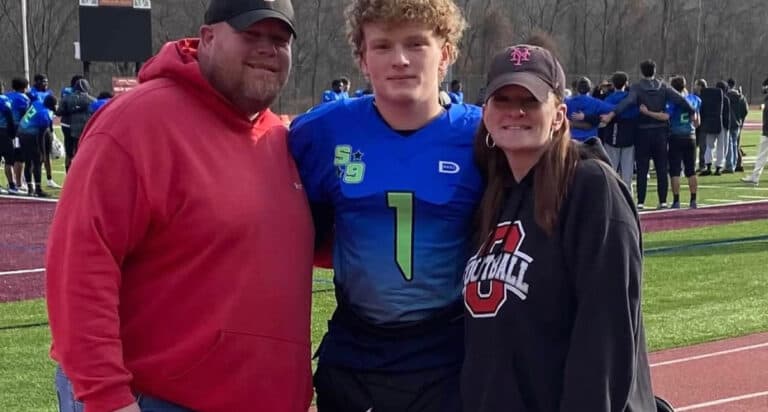My daughter, Frannie, has just left home for college and I have been struggling, unable to banish a memory of her at age five. We were at the park and Frannie, upon my urging, had dared to leave my side to join a group of neighborhood kids. Frannie hated separation, whether for school, a play date, or a pajama party. But I thought she should be able to play a game taking place only a dozen yards from where I sat. I promised her that she would be safe without me.
The game Frannie entered was one where all the kids formed a line and, holding hands, turned like a giant compass designed to etch a circle in the dirt. All the innermost person had to do was turn in place. Frannie, as the last arrival, was at the other end and risked being flung out of the circumference of each footfall weren’t quicker than the one before.
“I did it, Mama,” Frannie crowed as she ran back to me fifteen minutes later. “I didn’t know any of those kids and I went over and played with them.”
“I know, sweetie. I saw you,” I sang back, as if I could have missed the fact that my lap had cooled from her rare absence in it.
Frannie’s smile was so big it left little room for her cheeks. But her eyes were dark and flecked with the remainder of panic. She was not happy because she had fun but because she survived.
Should I have warned Frannie that she could end up being the human end of a whip?
I am not the best person to be guiding Frannie through the process of separation. Memories of my own first years at school include breakfasts I was too anxious to stomach, missed school buses, tears still drying as I entered classes well underway. I spent four weeks at camp when I was ten and eleven and forty-eight weeks each year worrying about going. Only during high school did I feel free enough to spend a summer in Israel uncontaminated by loneliness for my mother and home.
It was a short-lived respite. The desolation that struck me when I went away to college was so enveloping I convinced myself that I was going to die. Agoraphobia, disordered eating, and insomnia made even the shortest excursion from my dorm room—part bunker, part cell, part haven—a hallucinatory carnival of distorted sound, trick floors, and swirling visions.
There was a pattern to the ebb and flow of my anxiety. Pre-school through sixth grade marked my mother’s decline into depression. I couldn’t have named what was going on. I only knew that, while I was at school, the earth rotated a little without taking my mother along with me.
By the time I entered high school, though, my mother had emerged from her darkness as a strong and purposeful woman, so I could venture from home with confidence. I cried when my parents dropped me off at college, but not the days that followed.
My parents separated and then reunited when my mother was diagnosed with breast cancer, which would eventually take her life. I had no choice during her remaining years but to discover—mostly through therapy and finding meaningful work—how able I was not just to live but to thrive without her.
Despite her childhood anxieties, Frannie grew into her autonomy at a far earlier age than I did. But she never wandered too far. She never went to summer camp and, of course, I never pressed her to do so. In high school she went to a few out-of-state programs, including a summer in Spain. She always went with a friend. The first week of each trip required many phone calls home, and I was able to understand how helpless my mother must have felt during all those calls I made to her.
Like my mother, I had no easy answers, just soothing words: Go find your friend and talk to her. I’m sure in a few days you’ll be feeling more comfortable. If, after a week you’re still unhappy, you can always come home. The advice to tell a friend was rarely heeded; most kids feeling homesick are convinced they are the only ones and they don’t want to be a burden to others. But waiting for time to pass usually worked. Frannie never came home early, although certainly some kids should and do.
I like to think Frannie’s ability to cope with her separation anxiety is, in part, because of the stability my husband John and I have provided her. In response to my inability to count on my own mother at certain times, I have always made sure Frannie and her siblings saw me as strong and capable. But two years before Frannie’s departure for college, the trauma of my own college years became a persistent shadow.
On our first college tour, when Frannie was seventeen, she, John, and I decided within the first few minutes that we didn’t like the school. We hung back at the end of the group and made childish criticisms of students wearing Birkenstocks with socks. Halfway through the tour, we came to a dead-end on the walkway. When everyone turned, the three of us were now in the front. John and I slowed our pace and drifted to the back. Frannie didn’t notice our retreat and remained up ahead among the kids her age. Watching from behind, my gut responded as if Frannie had already left for college. My heart ached for her vulnerability as if, at any moment, she would be unable to spin her legs fast enough to keep up with her changing life. It was less than a minute before Frannie looked around and saw we were no longer next to her. She slowed her pace to return to us, for the moment preferring our company. But my job was to make sure my shadow didn’t cover her.
[More about the seven big talks to have with your college-bound teen, here.]
Now, Frannie is at her chosen school. I know approximately how many steps it takes to traverse its quadrangle, how its bookstore is organized, the smell of its cafeteria. Like a film editor who places real characters in fictitious settings, I have inserted Frannie’s figure into these places, but she is always too small or too young, her legs too short so that it takes her twice as many steps to cross the campus as everyone else. I cannot see her without seeing the whip.
I tell myself that Frannie was right to trust me that day in the park thirteen years ago. I might have dwelt on the vestiges of her panic, but she possessed the strut of a survivor. Frannie does feel vulnerable at times. She calls me or comes home, and I have no problem going to her. But mostly she is adjusting well. I know that by seeing her through the prism of my own experience, I risk holding her back—sympathizing too much with her anxieties rather than encouraging her to move forward. I could try removing that distorting lens, but what I really have to do is stop picturing Frannie at all. The only cure for separation anxiety is to give Frannie the opportunity to illustrate her life for me.
Related:
Go Ahead, Call Your College Freshman











